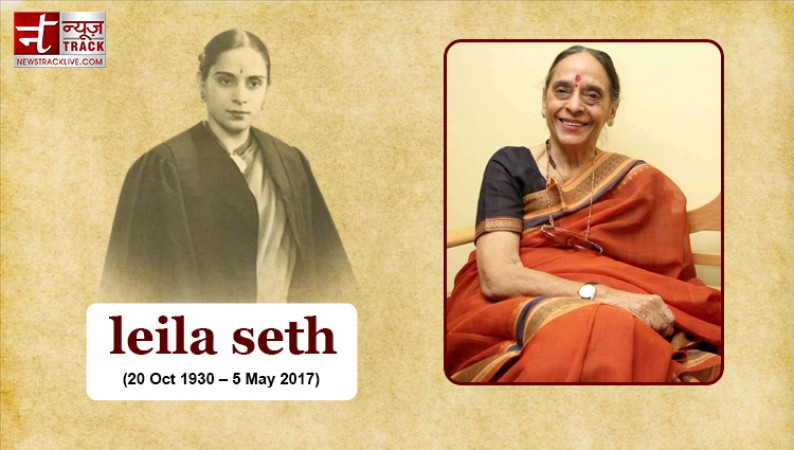
Leila Seth, the first woman judge of the Delhi high court, was born in 20 October 1930 in Lucknow and was the first woman to top the London Bar examination in 1958.
Leila Seth, was also member of the Justice J. S. Verma committee that was established to re-look at rape laws in India after the December 16, 2012 gang rape in Delhi, died of a cardiac arrest at her home in Noida on May 5 2017 at the age of 86.
Justice Leila Seth’s body was donated to the Army Research and Referral Hospital here in Delhi for the advancement of medical sciences and research, according to her will. There will, however, be a memorial service on May 28.
Leila Seth was the first woman judge of the Delhi High Court (HC) in 1978. She was known as a pioneering legal mind. Vikram Seth is a writer, Shantum is a Buddhist teacher, and Aradhana is an artist and filmmaker. Leila Seth is their mother.
During her life, Justice Seth broke many glass ceilings. She was the first woman to pass the London Bar Exam, the first woman judge on the Delhi High Court, and the first woman chief justice of a state high court (Himachal Pradesh).
She has been in charge of and led a number of legal and humanitarian organisations. From 1997 to 2000, she was on the 15th Law Commission of India. She was also the Chair of the Commonwealth Human Rights Initiative (CHRI) for a number of years.
She was an outspoken supporter of human rights, and it was her job to study how the TV show Shaktiman affected children. She became famous when she came out in support of her gay son, the writer Vikram Seth.
In 1959 she was also selected for IAS, but in pursuit of a legal career, she joined the London Bar. Justice Seth was also part of a team that looked into how Biscuit Baron Rajan Pillai died while he was in jail. She was in charge of changing the Hindu Succession Act so that daughters had the same rights as sons when it came to joint family property.
In 1959, she began her career as a lawyer by becoming a member of the Calcutta high court and the Supreme Court. She worked as a lawyer for 20 years before becoming a judge at the Delhi high court.
She worked at the Patna high court for about 10 years, where she handled a large number of cases involving income tax, sales tax, excise and customs, civil entities, companies, and criminality. She also took on family law cases and cases in the public interest.
In 1972, she started working as a lawyer in the Delhi high court, where she did original civil work, company petitions, writ petitions, tax issues, revisions, and appeals. In the same year, she also started working at the Supreme Court, where she handled tax cases, writ petitions, and civil and criminal appeals based on the Constitution.
Since June 1974, Justice Seth was one of the lawyers for the West Bengal government in the Supreme Court. On January 10, 1977, the highest court in the land gave her the title of senior advocate.
In 1978, Justice Seth was put on the Delhi high court as an extra judge. After two years, she was made a judge for good.